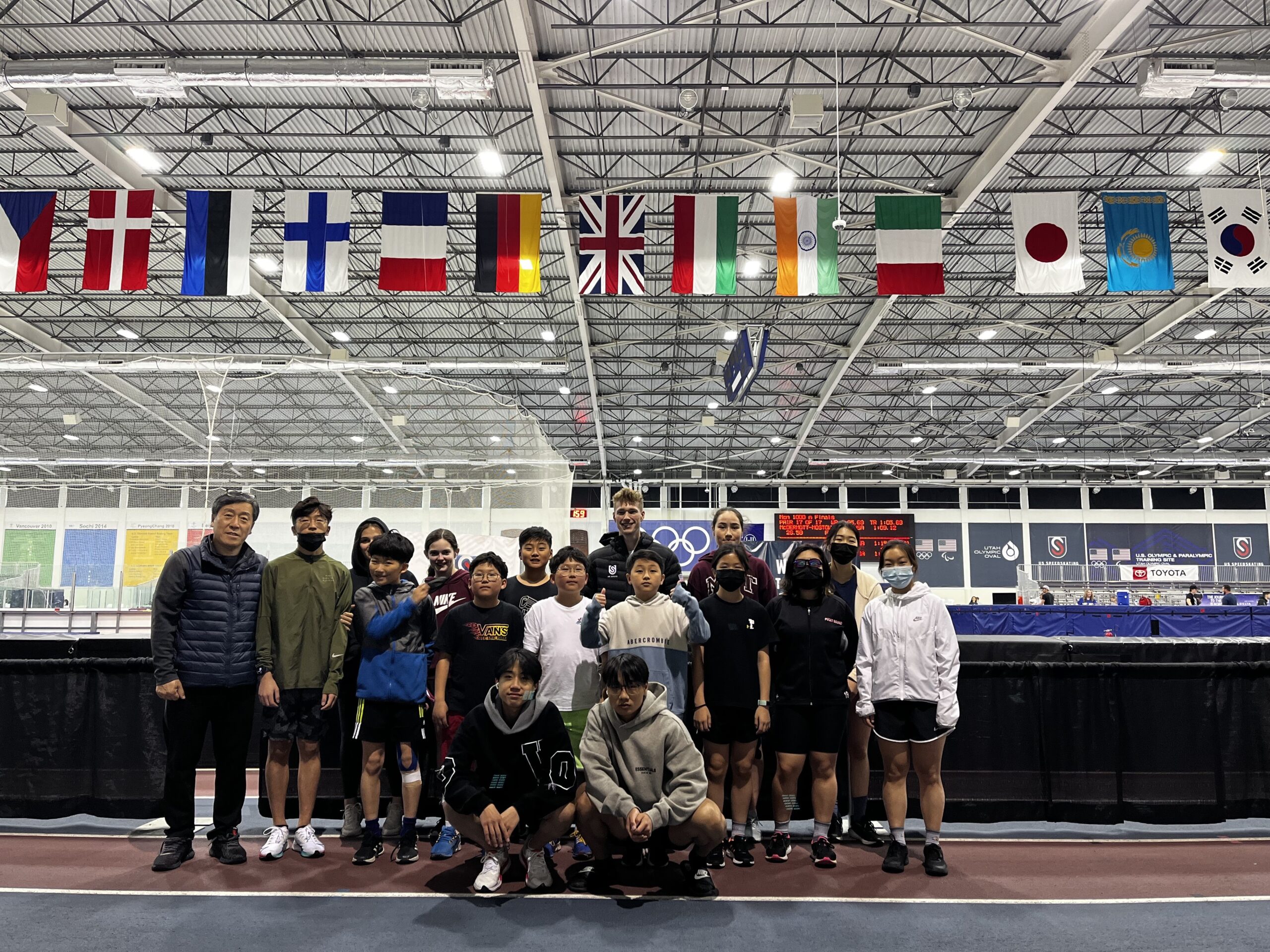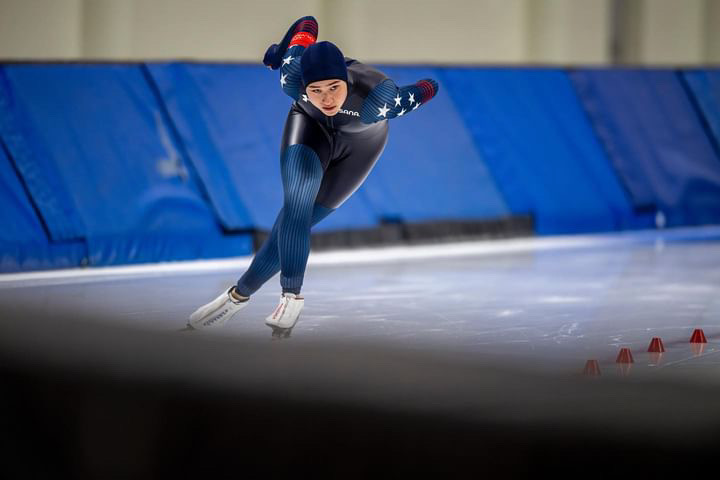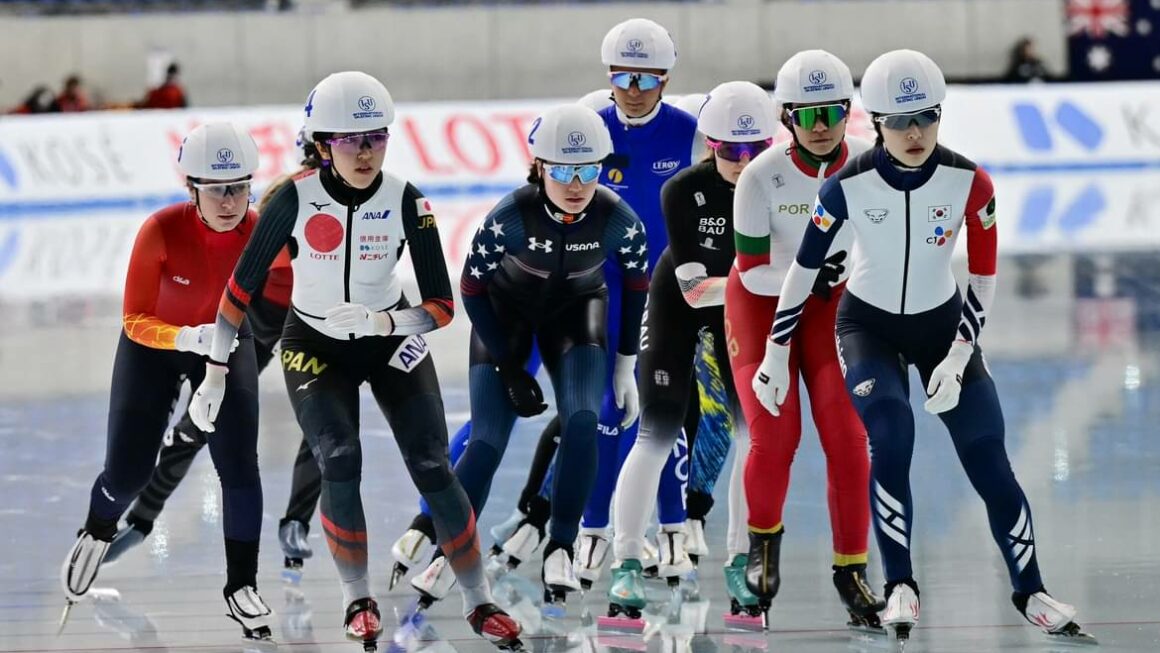Every single time I step up to the line, I hesitate. I think, what if I’m not fast enough? What If I don’t have enough energy? What if my legs blow up? What if I lose to them? Last weekend, I had my first race of the season and this exact thing happened. The only thing is, normally when I second-guess myself, I do better than expected. This time? Oh, this time I wasn’t fast enough; I didn’t have enough energy, I did lose to my competitor, and my legs did in fact blow up.
In sports, there’s always a mindset that comes with competing. For serious athletes competing on any level, having a healthy mindset is crucial. I know that many of my teammates get in their heads, and it usually ends up messing with their race. That never used to happen to me, but that’s probably just because I didn’t care. I used to be that kid who competed because I enjoyed it with no ulterior motive. Now that I’m older and have a chance at making a career for myself in skating, I get a lot more nervous before races, like last weekend.
For the week leading up to the competition, I felt great. Everyone was telling me about how fast I looked, and how I could meet or surpass my goal times. I felt super confident, but after my first race, I looked at the clock and my eyes immediately welled up with tears. My time matched my personal best, but this was super disappointing because my biggest competitor surpassed me in the race that was supposed to be my specialty. I felt super disheartened and honestly a little embarrassed. I started blaming myself, telling myself I should’ve just gone faster, and that I sucked at skating. Looking back, I realize just how toxic this mindset was. In my next race, I got a PB, but it wasn’t the time I wanted. My eyes teared up again, but I kept them at bay. This time, when I finished my race and was met with a disappointing time, I took a step back and analyzed my situation.
The week leading up to the competition was intense. I had been training non-stop for 3 weeks at altitude and my body was exhausted. My knees were worse than ever, and I was mentally stressed, worrying about my summer homework and the upcoming competition. In addition to this, I spent nearly every day in the pool with all the little kids, and that was a workout in itself. After analyzing my situation, I realized I hadn’t done as poorly as I thought I’d done. My competitors get to train on a long track all season, whereas I do short track in between competitions. Plus, they have the environment and resources to train in ways I can’t.
All of these factors played a role in my performance, and being able to acknowledge this has put me in a much more positive mindset. After the competition, both the Olympic team coaches came up to me and commented on my racing before giving me some advice that I will remember for the rest of my life. They told me that I had looked amazing while I was skating, and I had no reason to be disappointed in any of my races. I can’t expect to do my very best in the first competition of the season. The fact that I’d matched or gotten the slightest bit faster than my previous PBs was an accomplishment in itself. I had been performing on 60% of my max energy which took a toll on my skating, but to avoid this, I just needed to taper before any important competitions. The most important advice they gave me was to analyze my situation before reacting. This piece of information is what helped me handle my second race more reasonably and have a better attitude for the rest of the competition.
Analyzing your situation before and after a race or competition is important because it can help prevent you from getting in your head. This is also part of being in tune with your body. If you know you’re physically drained, analyzing your situation can help you set more reasonable goals that are attainable. For the rest of the competition, I took it one race at a time and adjusted my goals depending on how I felt.
As I result, I did not cry for the rest of the competition, I enjoyed my races more, and I was more pleasant to be around. This competition was also an important experience because it taught me how my actions affect others. I know that my actions affect others, but my terrible mood made everything more stressful for my mom who was only trying to help. Key Lesson: RESPECT YOUR PARENTS. They are on your side. Everything they do is meant to help you, and even if it doesn’t make any difference, the fact that they cared enough to try to make things better for you is comfort in itself.



